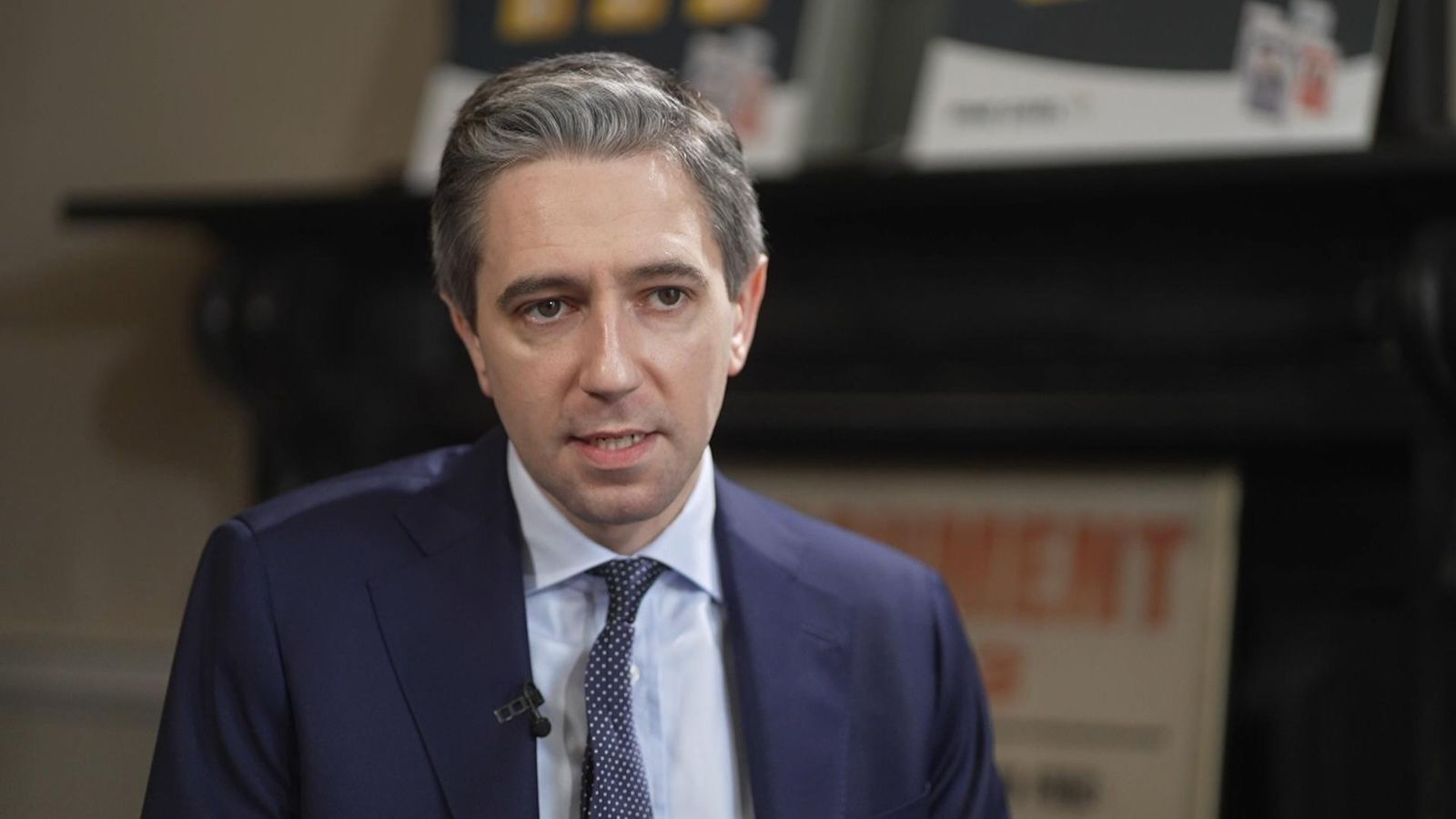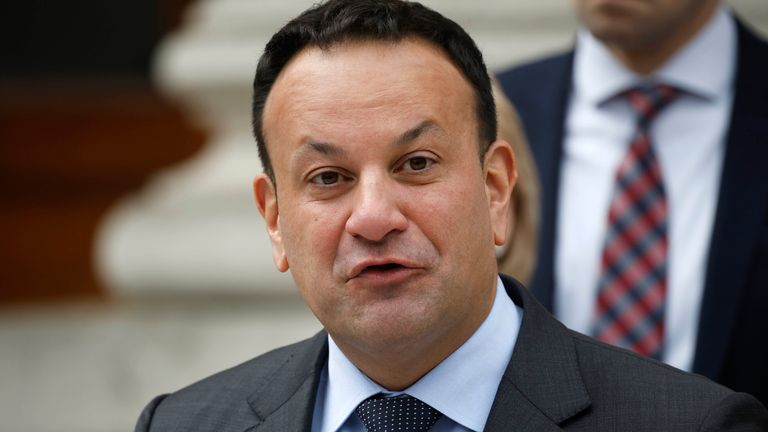Ireland’s new prime minister-elect Simon Harris says Irish unity is “a legitimate aspiration” but will not be his priority as incoming Taoiseach.
In his first interview as Fine Gael leader, he addressed diplomatic tensions post-Brexit, adding that he sought “closer relations” with the UK.
Leo Varadkar, who is due to pass the baton on Tuesday, was the first Fine Gael Taoiseach to predict Irish unity within his lifetime.
Mr Harris, who at 37 will be the youngest ever Taoiseach, said: “It’s a legitimate political aspiration for people in our country to want to see a united Ireland.
“The Good Friday Agreement provides that framework. You can recognise different political aspirations and a clear pathway for those to be achieved.
“That’s not where my focus and priority is right now and quite frankly, it’s not where I believe our focus and priority should be.
“We have a peace process that is enduring on this island and is in many ways, one of the most successful peace processes in the world.
“But it’s also a frosty peace. I don’t believe we’ve had an opportunity to see the full potential of prosperity embedded right across the island of Ireland through the framework of the Good Friday Agreement.”
Read more:
Who is Simon Harris, Ireland’s next prime minister?
Mr Harris described Brexit as “really difficult and challenging”, Ireland having had to deal with five UK prime ministers, six foreign secretaries and six Northern Ireland secretaries in the space of five years.
He said: “We had very clear national ambitions going into that engagement, in terms of protecting our national interest, protecting our role in the single market, and crucially, protecting the peace process.
“But I want to say this very clearly, I do want to have closer relations with Britain, with the UK government.
“Trade between our two countries is worth €2.5bn every single week.
“We know each other historically, through families, through friends, through work.
“Britain remains our nearest neighbour, even if outside of the European Union, and I do think a lot of good progress has been made in the last year.”
Mr Harris, who will face a general election by March 2025 at the latest, denied the coalition government had been slow to address concerns around immigration.
He said: “Ireland gets immigration. We’re a country that used to see many people leave our shores and go abroad to seek a better life.
“Now we’re a country in which people wish to come to make a better life, but we do need a fair and firm system.
“It is true to say that there are some people who seek to exploit moments of crisis, but there’s also a need for government to do a better job in terms of listening to communities and engaging with communities,” he added.
Watch the interview in full on Sunday Morning with Trevor Phillips


